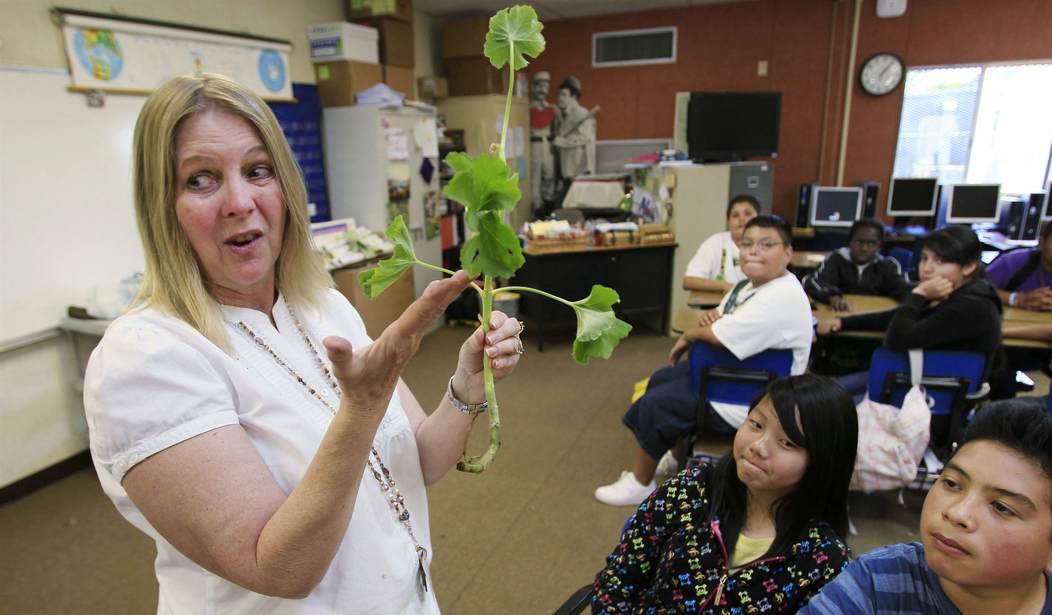My recent columns have focused on the extremely poor educational outcomes for black students. There's enough blame for all involved to have their fair share. That includes students who are hostile and alien to the educational process and have derelict, uninterested home environments. After all, if there is not someone in the home to ensure that a youngster does his homework, has wholesome meals, gets eight to 10 hours of sleep and behaves in school, educational dollars won't produce much.
There's another educational issue that's neither flattering nor comfortable to confront. That's the low academic quality of so many teachers. It's an issue that must be confronted and dealt with if we're to improve the quality of education. Most states require prospective teachers to pass a certification test. How about a sample of some of the test questions.
Here's a question from a recent test given to college students in Michigan planning to become teachers: "Which of the following is largest? a. 1/4, b. 3/5, c. 1/2, d. 9/20." Another question: "A town planning committee must decide how to use a 115-acre piece of land. The committee sets aside 20 acres of the land for watershed protection and an additional 37.4 acres for recreation. How much of the land is set aside for watershed protection and recreation? a. 43.15 acres, b. 54.6 acres, c. 57.4 acres, d. 60.4 acres".
The Arizona teacher certification test asks: "Janet can type 250 words in 5 minutes, what is her typing rate per minute? a. 50wpm, b. 66wpm, c. 55wpm, d. 45wpm." The California Basic Educational Skills Test asks the test taker to find the verb in the following sentence: "The interior temperatures of even the coolest stars are measured in millions of degrees. a. Coolest, b. Of even, c. Are measured, d. In millions". A CBEST math question is: "You purchase a car making a down payment of $3,000 and 6 monthly payments of $225. How much have you paid so far for the car? a. $3225, b. $4350, c. $5375, d. $6550, e. $6398."
Recommended
My guess is that these are questions that an eighth- or ninth-grader with a good education ought to be able to answer. Such test questions demonstrate the low bar that states set in order for one to become a certified teacher. Even with such low expectations, college graduates have failed these and similarly constructed teacher certification tests. Recently, New York, after being tied up in court for years, dropped its teacher literacy test amid claims of racism.
A 2011 investigation by WSB-TV found that more than 700 Georgia teachers had repeatedly failed at least one portion of the certification test they were required to pass before receiving a teaching certificate. Nearly 60 teachers had failed the test more than 10 times, and one teacher had failed the test 18 times. There were 297 teachers on the Atlanta school system's payroll who had failed the state certification test five times or more.
With but a few exceptions, schools of education represent the academic slums of colleges. They tend to be home to students who have the lowest academic test scores -- for example, SAT scores -- when they enter college. They also tend to have the lowest scores when they graduate and choose to take postgraduate admissions tests -- such as the GRE, the MCAT and the LSAT. Professors at schools of education tend to have the lowest level of academic respectability. American education could benefit from eliminating schools of education.
You might ask: Without schools of education, how would teachers be trained? I think that we ought to adopt a practice whereby teachers are hired according to their undergraduate major. I learned this talking to a headmistress of a private school. She said she doesn't hire education majors. She said that if she hires a teacher to teach chemistry, math, English or any other subject, the person must have a bachelor's degree in the discipline. Pedagogical techniques can be learned through short formal training, coaching and experience.

























Join the conversation as a VIP Member